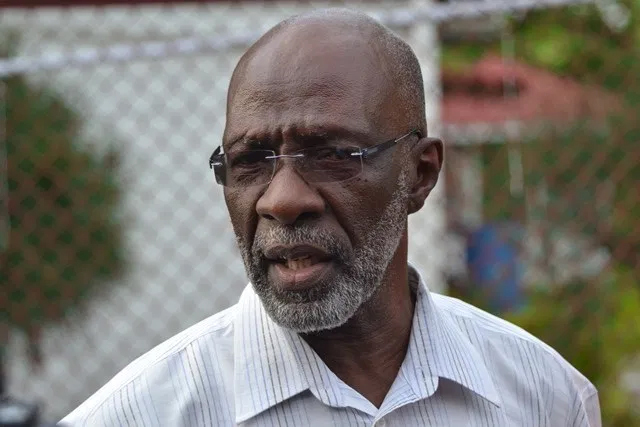The Guyana Elections Commission (GECOM) at its weekly statutory meeting yesterday took a decision to commence continuous registration in anticipation of hosting Local Government Elections (LGE).
That was confirmed by government-nominated Commissioner Sase Gunraj and his Opposition counterpart Vincent Alexander.
Gunraj told Stabroek News that the Commission has also decided that no data would be used from the 2019 house-to-house registration process. He also said that it was the Chair, retired Justice Claudette Singh who cast the deciding vote since the opposition voted against it.
The opposition has been contending that the voters’ list is bloated and should be addressed before the hosting of another election. That has been the contention since the onset of the March 2020 polls which saw the APNU+AFC coalition being voted out.
Alexander said that he had requested an additional day to review the plan for continuous registration but that was not afforded to him.
“I requested time of a night to assimilate and make comments which I would still do but a vote was taken still… GECOM should seek a solution to the bloated list. People admitted that it is a bloated list but they said that the solution is beyond GECOM and that it required legislative action and that it is beyond GECOM. We have to do what we have to do while other people have to do what they have to do,” Alexander said.
At the beginning of February, Alexander and his opposition colleagues Charles Corbin and Desmond Trotman had proposed that an internal investigation be launched into the events of the March 2020 general and regional elections.
Additionally, they called for the cleansing of the voters` list noting that it is a persistent demand of major stakeholders and should be addressed.
“In that regard, the Judgment in relation to House-to-House Registration should be clarified from the standpoint of its applicability to the voters` list as distinct from the Register of Registrants. In like manner, relatedly or separately, the relevance and application of Regulation 40 of the National Registration Act should be determined,” the proposal had said.
The trio had further argued that a mechanism to provide for the cleansing of the voters` list has to be integral to any amendment of the electoral laws. They added that the mere fact that there is no mechanism to ensure that a registrant who dies overseas can be removed from the voters` list is sufficient reason to warrant such a mechanism when speaking to the proposed amendments to the Representation of the People Act (RoPA).
Yesterday, Alexander said that his proposal was discussed for weeks in relation to the house-to-house exercise that took place and how the information can be utilized.
“But basically what has been determined by the majority is that they would do a continuous registration to build on the old list though it was proposed by some of us that that should not occur. So the idea was not frowned upon but it was said that because of the judge’s ruling there is a need for legislative action,” Alexander said.
He said that the Opposition side is not in support of the decision to have continuous registration and that the decision is now in the hands of the political parties they represent to address the issue.
Weaknesses
Another issue of importance that was raised at the meeting is that GECOM needs to initiate a review of the 2020 elections so that it can determine its weaknesses in its system for the purposes of rectification.
“GECOM is in no position to objectively contribute to the process of amending RoPA in the absence of an internal investigation of the 2020 elections to determine what are the manifested weaknesses of its system and operations,” the opposition Commissioners had said in their proposal to the Commission.
Yesterday, Alexander said “two commissioners, in particular, objected to the exercise (of the investigation). One commissioner said that it is useful that we do such an exercise but let’s do it after things like elections and so. The chairperson concurred that we do such an exercise but she did not express a view as to when or she might have said let’s do it later
“So on the table is the question of GECOM initiating a review of its operations of its 2020 elections with the view of identifying the deficiencies, weaknesses etc. that can be rectified as we go forward. It was agreed in principle that we should do it but a final decision as to when it should be done wasn’t taken. I am of the view that it should be done before Local Government Elections because we would take our faults into another election. That view was not embraced by all,” he added while identifying Gunraj and his colleague Bibi Shadick as the Commissioners with a differing view.
He remains adamant that the list should be addressed before LGE is held.
Local Government Elections were constitutionally due at the end of last year but GECOM was without a Chief Election Officer and could not have prepared to host the elections. As such, the Chair, retired Justice Claudette Singh wrote to the government informing of such but did not commit to confirming a timeline after the appointment of a CEO.
In the 2021 budget, the government allocated $1.1 billion for the holding of LGE before the end of the year. Some $237.7 million was scheduled to go towards the printing of 500,000 ballots and other material, while $285.7 million was budgeted for voter education and other programmes. Additionally, $135.7 million was to go towards the training of elections day staff, $81.6 million for rental of buildings to conduct the elections and $75.6 million for meals.





